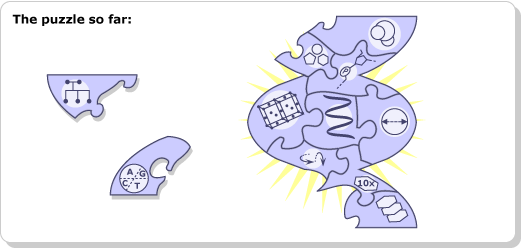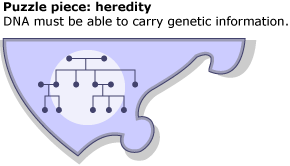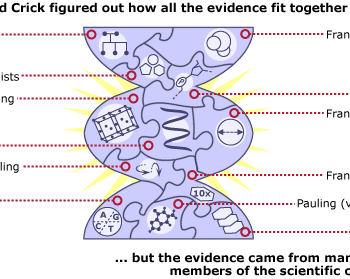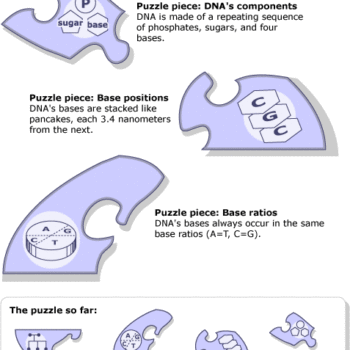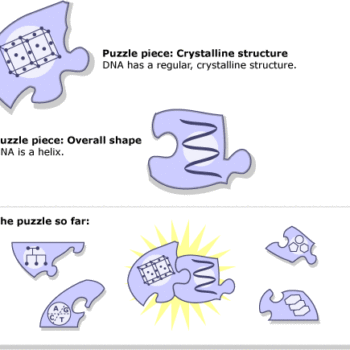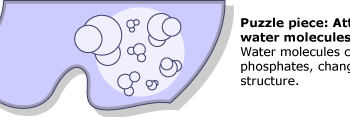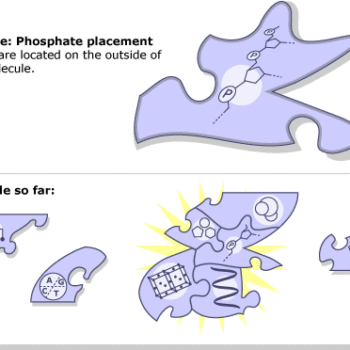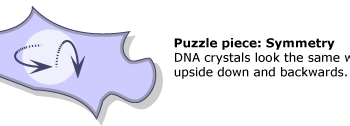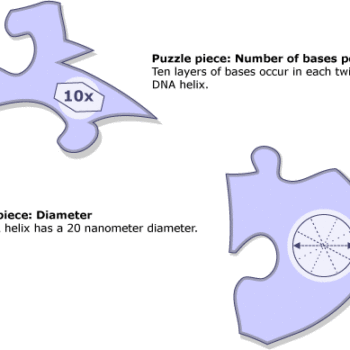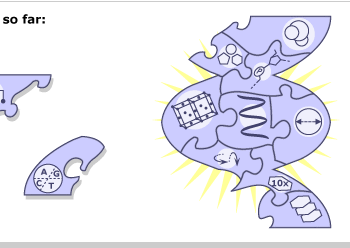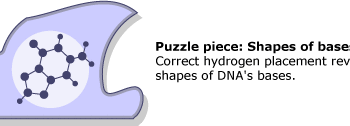Puzzle piece (8 of 10) – DNA structure - Understanding Science (original) (raw)
Image Caption
The DNA puzzle after the addition of the stacked bases and helix diameter findings.
Image use policy: For non-commercial, educational purposes, this image may be used with a Creative Commons CC BY-NC-SA 4.0 license. Please credit as follows: © University of California Museum of Paleontology, Understanding Science, www.understandingscience.org
See where this image appears on the Understanding Science website »
To save: 1) Click on image for the full-size version, 2) right-click (Windows) or control-click (Mac) on the image, and 3) select "Save image."
This image is part of a series:
Puzzle piece (1 of 10) – heredity
DNA is the component of chromosomes that carries genetic information.
Puzzle piece (10 of 10) – Evidence for the structure of DNA
Watson and Crick figured out how all the evidence fit together but the evidence came from many different members of the scientific community.
Puzzle piece (2 of 10) – DNA structure
DNA is composed of phosphates and sugars attached to nitrogenous bases, which are arranged in stacks and always have the same ratio.
Puzzle piece (3 of 10) – DNA structure
DNA has a regular structure arranged in a helix.
Puzzle piece (4 of 10) – DNA structure
Franklin and Gosling find that water molecules can cling to the DNA.
Puzzle piece (5 of 10) – DNA structure
Based on the ease with which DNA took up water, Franklin reasoned that the phosphates (which attract water) must be on the outside of the helix.
Puzzle piece (6 of 10) – DNA symmetry
DNA crystals look the same when turned upside down and backwards.
Puzzle piece (7 of 10) – DNA helix
Image B 51 also suggested the number of bases per twist and the diameter of the helix.
Puzzle piece (8 of 10) – DNA structure
The DNA puzzle after the addition of the stacked bases and helix diameter findings.
Puzzle piece (9 of 10) – DNA bases
Correct hydrogen placement revealed the shapes of DNA's bases
